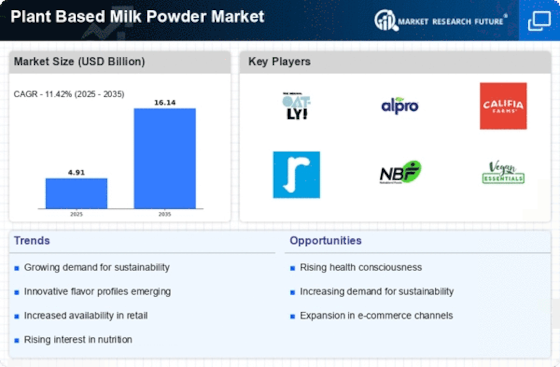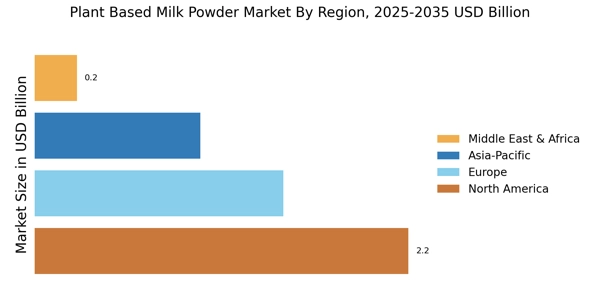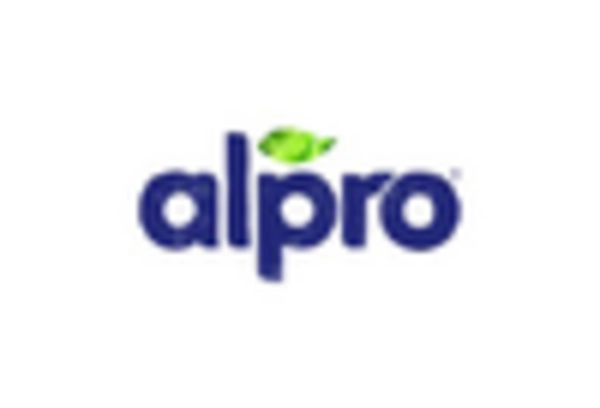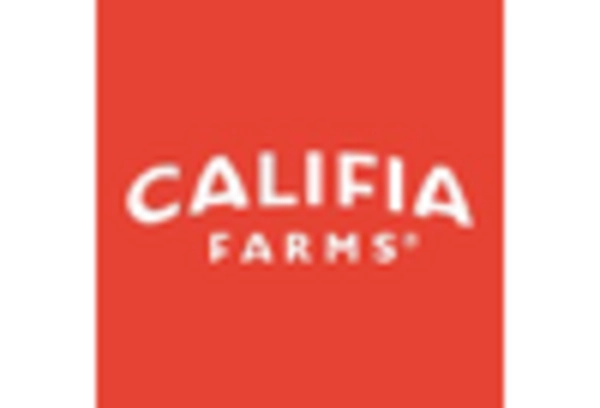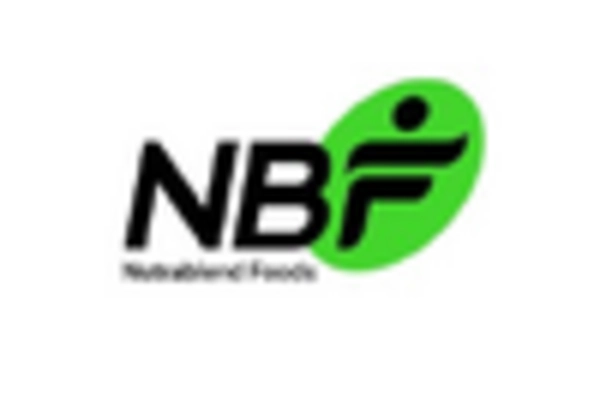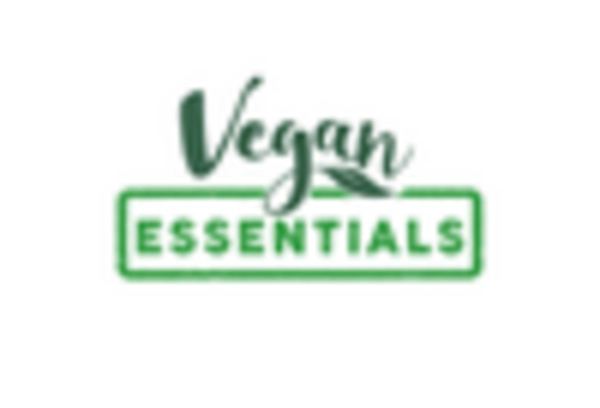Increasing Vegan Population
The rise in the vegan population appears to be a pivotal driver for the Plant Based Milk Powder Market. As more individuals adopt veganism for ethical, health, or environmental reasons, the demand for plant-based alternatives continues to surge. Recent estimates suggest that the number of vegans has increased significantly, with projections indicating a potential growth rate of 10% annually. This demographic shift not only influences consumer preferences but also encourages manufacturers to innovate and diversify their product offerings. Consequently, the Plant Based Milk Powder Market is likely to witness an influx of new products tailored to meet the needs of this expanding consumer base, thereby enhancing market dynamics.
Innovative Product Development
Innovation in product development is a crucial driver for the Plant Based Milk Powder Market. Manufacturers are increasingly focusing on creating diverse and appealing products that cater to various consumer preferences. This includes the introduction of flavored milk powders, fortified options, and blends that combine different plant sources. The market has seen a notable increase in the availability of products that not only meet dietary restrictions but also offer unique taste experiences. As a result, the Plant Based Milk Powder Market is likely to benefit from enhanced consumer engagement and loyalty, as innovative offerings attract a broader audience and encourage trial among hesitant consumers.
E-commerce Growth and Accessibility
The rapid growth of e-commerce is transforming the retail landscape, providing a significant boost to the Plant Based Milk Powder Market. Online shopping platforms have made it easier for consumers to access a wide range of plant-based products, including milk powders, from the comfort of their homes. This shift in shopping behavior is particularly relevant for niche products that may not be readily available in traditional retail outlets. Data indicates that e-commerce sales in the food and beverage sector have surged, with plant-based products experiencing a notable share of this growth. As a result, the Plant Based Milk Powder Market is likely to benefit from increased visibility and accessibility, fostering greater consumer adoption and market expansion.
Health Benefits of Plant-Based Diets
The growing awareness of the health benefits associated with plant-based diets is driving the Plant Based Milk Powder Market. Research indicates that plant-based diets can reduce the risk of chronic diseases, such as heart disease and diabetes, which resonates with health-conscious consumers. As individuals increasingly seek alternatives to dairy, the demand for plant-based milk powders, rich in nutrients and free from lactose, is expected to rise. Market data suggests that the plant-based milk segment has experienced a compound annual growth rate of approximately 12% over the past few years. This trend underscores the potential for the Plant Based Milk Powder Market to expand as consumers prioritize health and wellness in their dietary choices.
Sustainability and Environmental Concerns
Sustainability and environmental concerns are becoming increasingly salient in consumer decision-making, significantly impacting the Plant Based Milk Powder Market. As awareness of climate change and resource depletion grows, consumers are gravitating towards products that align with their values. Plant-based milk powders are often perceived as more sustainable alternatives to traditional dairy, as they typically require fewer resources and generate lower greenhouse gas emissions. Market analysis indicates that products marketed with sustainability credentials are likely to experience higher demand, as consumers prioritize eco-friendly options. This trend suggests that the Plant Based Milk Powder Market may continue to thrive as sustainability becomes a central theme in consumer purchasing behavior.


